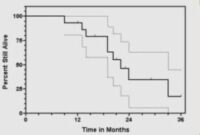Fundamentals Statistical Tools
This workshop offers an introduction to the fundamental principles and concepts in statistics. The first part covers classical and more recent exploratory data analysis (EDA) techniques to describe data with numerical and graphical tools. The various uses of these methods such as outlier detection is discussed. The second part addresses, with the help of real-life examples, the principles underlying statistical testing and decision-making in the presence of uncertainty. It covers risks involved, effect size, p-values as well as statistical significance and practical relevance. The use and interpretation of confidence intervals is also discussed. An excellent introductory module and a solid basis for all other courses.





